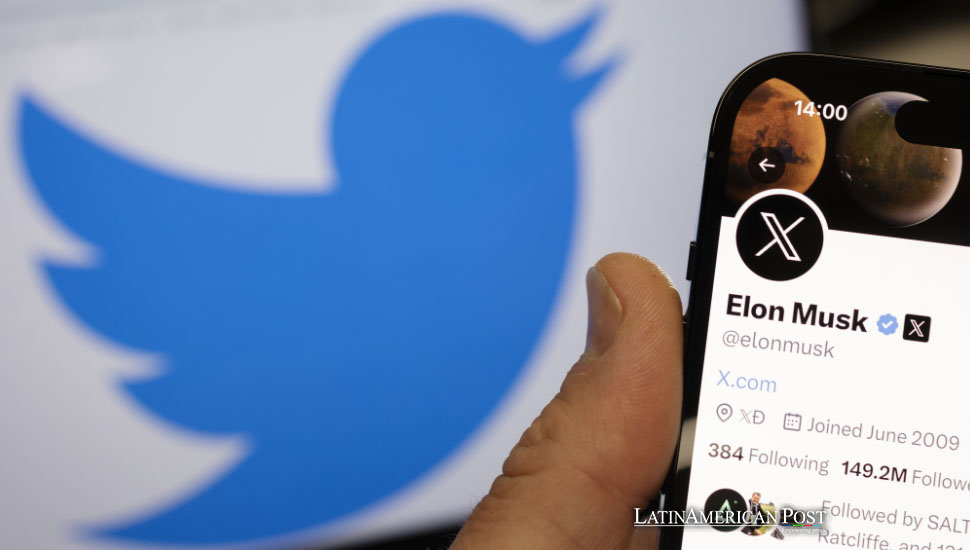Brazilian Court Denies X’s Request to Exempt Subsidiary from Legal Responsibility

Brazil’s Supreme Court Justice Alexandre de Moraes insists on social media platforms’ local legal compliance, denying X’s request to divert court decisions to its international offices amid escalating controversies involving billionaire Elon Musk and political manipulation claims.
In a notable assertion of jurisdiction, Brazil’s Supreme Court Justice Alexandre de Moraes has emphatically stated that foreign companies operating in Brazil, such as the social media platform X, formerly Twitter, must adhere to Brazilian laws. This declaration came as he rejected X’s plea to route judicial decisions concerning the company to its global headquarters, spotlighting the ongoing tension between international business interests and national legal sovereignty in Latin America.
The Musk Factor: A Legal Clash Unfolds
The conflict has been further inflamed by the contentious actions of Elon Musk, the billionaire owner of X, who has come under investigation by Brazil’s Supreme Court. Musk’s public accusations against de Moraes, alleging “criminal and fraudulent manipulation” of Brazilian justice, have ignited controversy. This legal standoff is not just a bilateral issue but resonates across Latin America, where the balance between foreign corporate influence and domestic legal frameworks is increasingly scrutinized.
At the heart of the dispute is X’s alleged non-compliance with Brazilian court orders, particularly regarding removing profiles disseminating fake news and threatening messages against authorities. This situation has prompted a legal and public relations crisis for X in Brazil, challenging the company’s operational autonomy and raising broader questions about the accountability of international tech giants in the region.
X’s representatives in Brazil sought to deflect legal responsibilities to its parent company, X Corp, based in the United States and Ireland, claiming that the Brazilian subsidiary’s role was confined to marketing and promotion. However, de Moraes dismissed this argument as bad faith litigation, affirming X Brazil’s “full legal, civil, and administrative responsibility” under Brazilian jurisdiction.
Politics and Perception: Musk’s Role in the Fray
This legal drama is set against a backdrop of political upheaval. Musk’s criticisms of the Brazilian judiciary are seen by many as tacit support for the far-right faction led by former President Jair Bolsonaro. Musk’s relationship with Bolsonaro and his public denunciations of de Moraes, accusing him of electoral interference favoring current President Luiz Inácio Lula da Silva, have added complexity to the narrative.
The Musk-X saga in Brazil is emblematic of a more significant phenomenon across Latin America, where the influence of foreign businesses, particularly in the tech sector, is increasingly intersecting with local politics and governance. Countries like Mexico, Argentina, and Chile are also navigating the challenges of regulating international digital platforms, balancing the need for foreign investment and innovation with the imperative to uphold national laws and sovereignty.
In Brazil, this episode has sparked a broader debate on the power dynamics between multinational corporations and national legal systems, reflecting growing concerns across the region about digital sovereignty, misinformation, and the role of social media in politics. The Brazilian judiciary’s firm stance against X underlines a commitment to enforcing local laws, even against powerful global entities, setting a potential precedent for other Latin American nations grappling with similar issues.
The Intersection of Technology and Governance
Moreover, the Musk-de Moraes feud underscores the increasing politicization of social media and its entanglement with global political narratives, highlighting the complex web of interests that define the digital age. As Latin American countries continue to democratize and strengthen their institutions, resolving such conflicts will be crucial in shaping the region’s digital landscape and relationship with international tech giants.
Also read: Senna’s Legacy: Three Decades of Speed, Spirit, and Inspiration in Brazil and Beyond
The confrontation between X and the Brazilian Supreme Court, punctuated by Musk’s provocative involvement, is more than a legal skirmish; it is a litmus test for the region’s regulatory and judicial independence in the face of global digital conglomerates. As Latin America grapples with the twin challenges of technological advancement and political integrity, the outcome of this dispute will have far-reaching implications for the balance of power between national sovereignty and international corporate influence in the digital realm.





